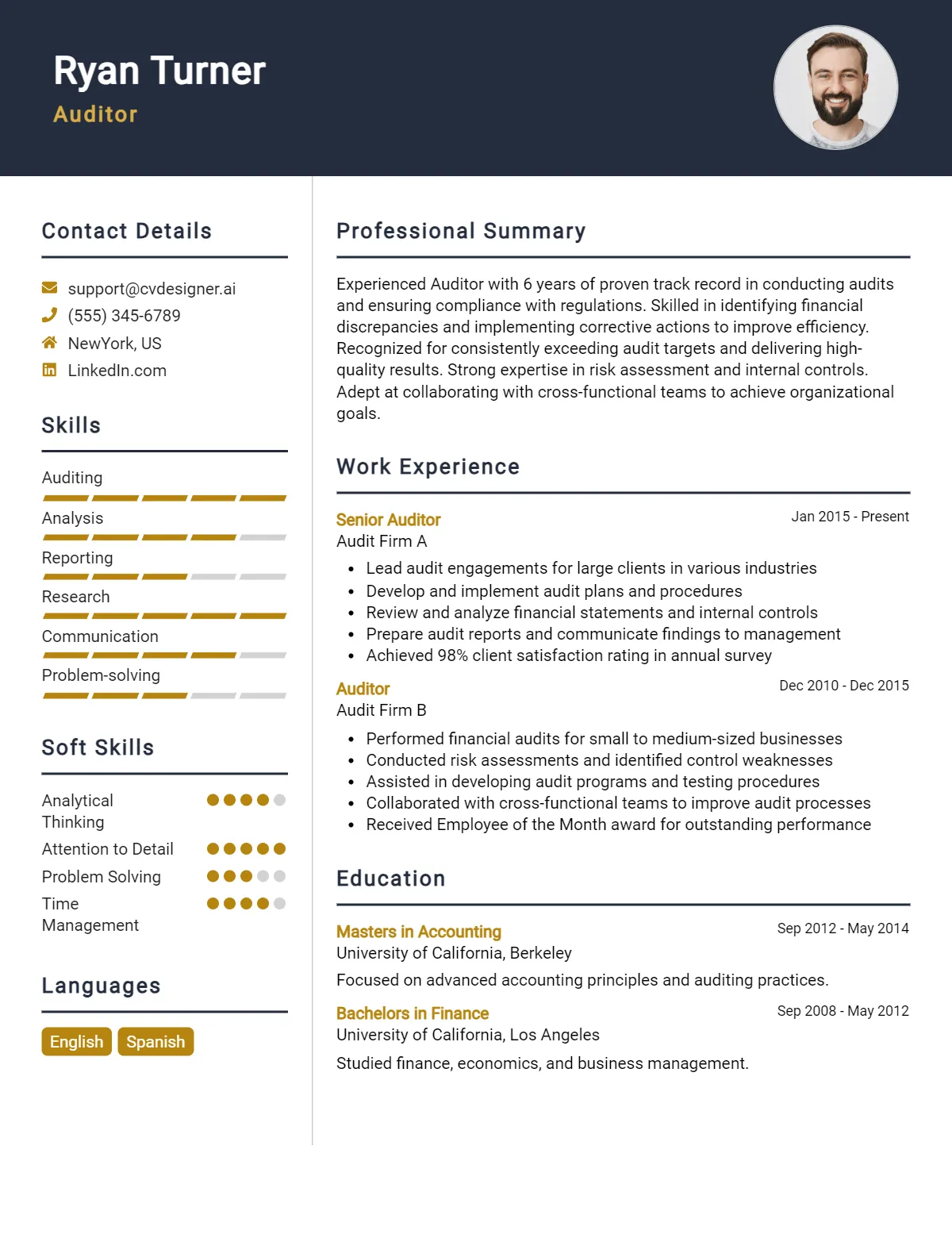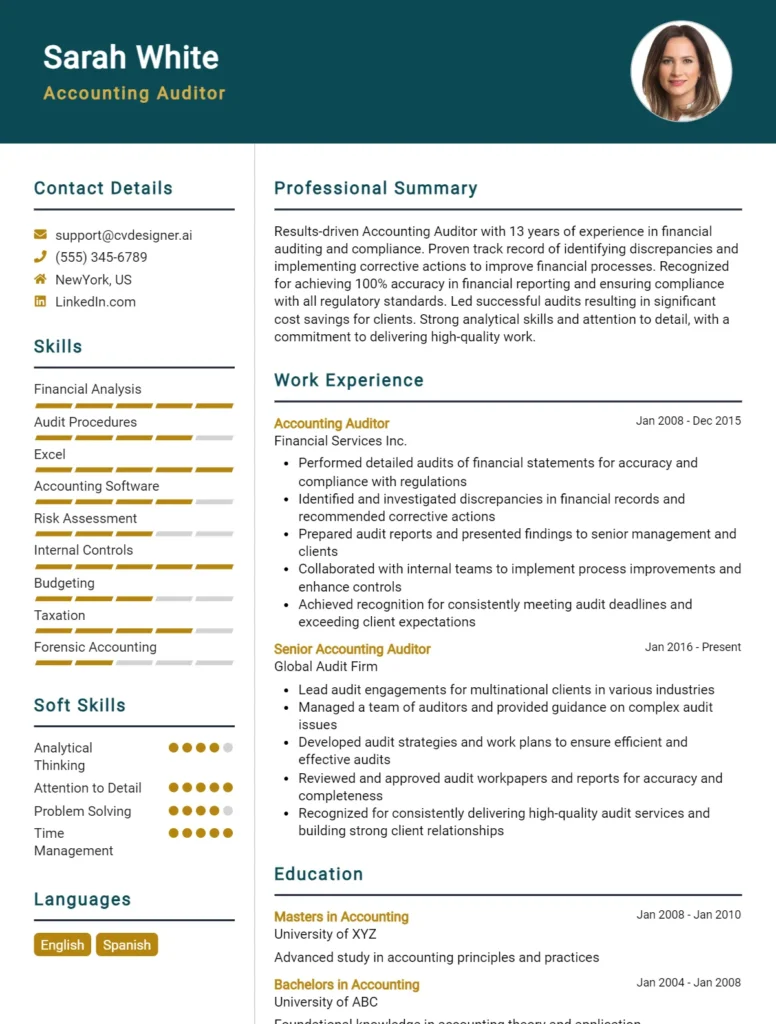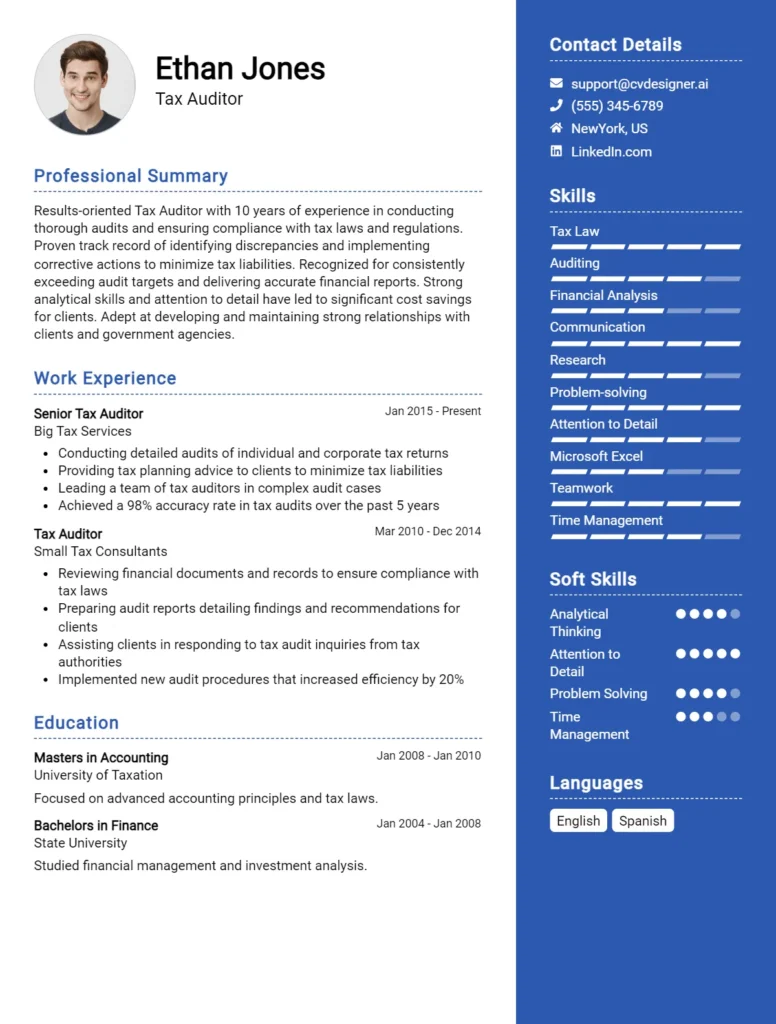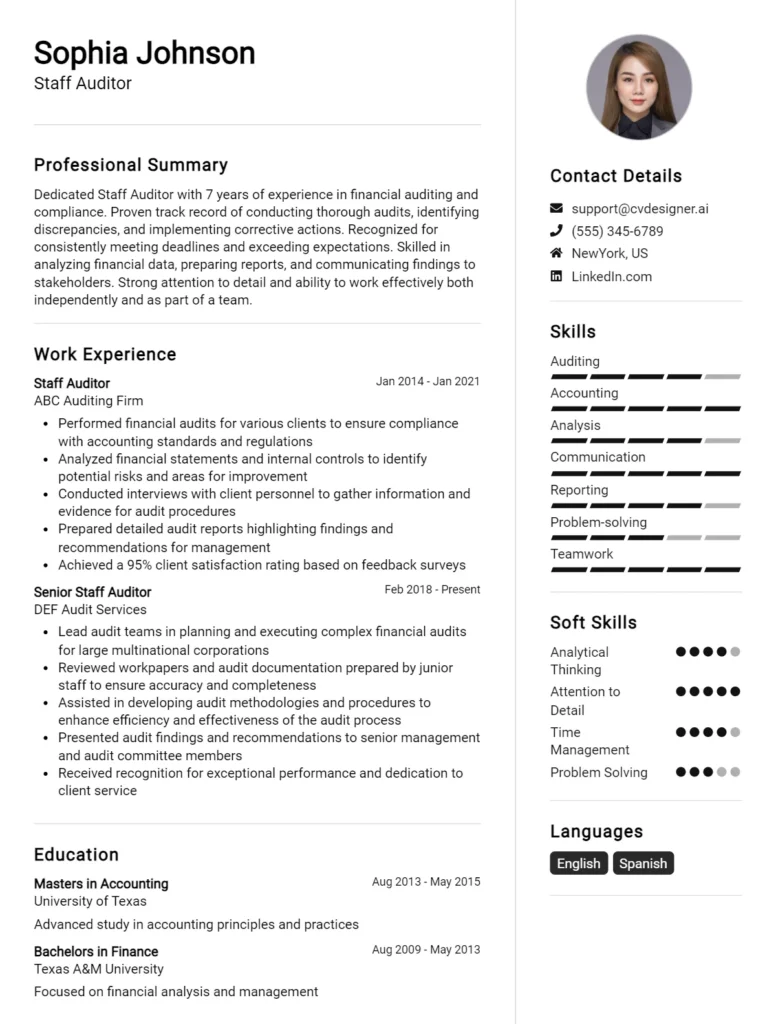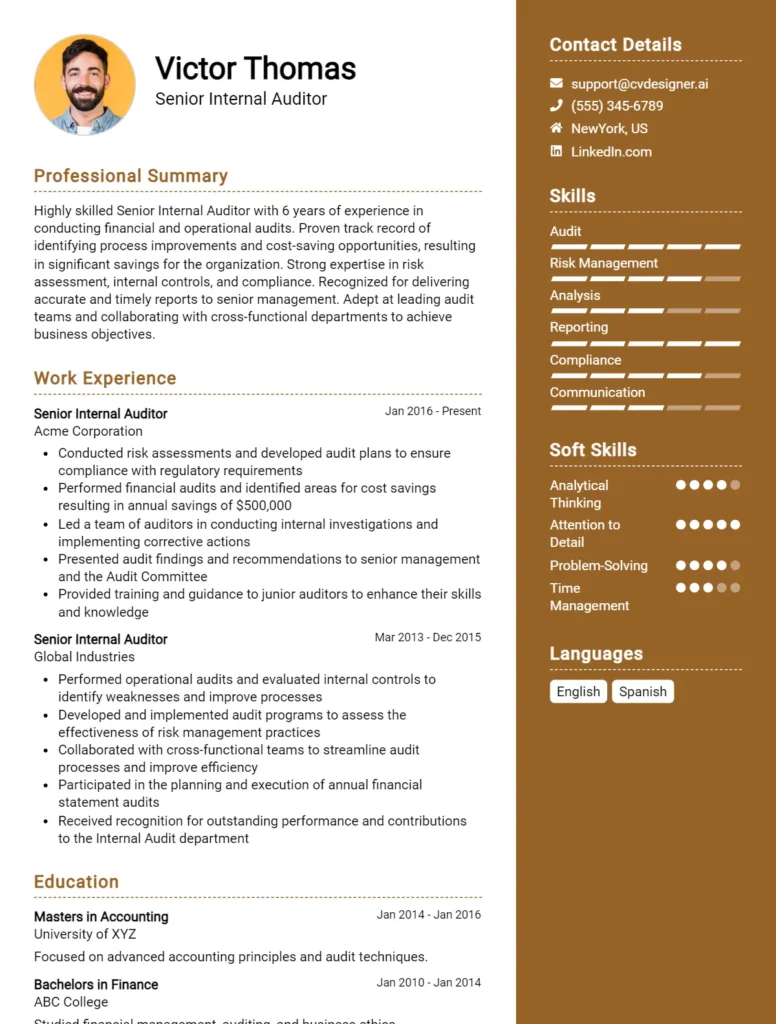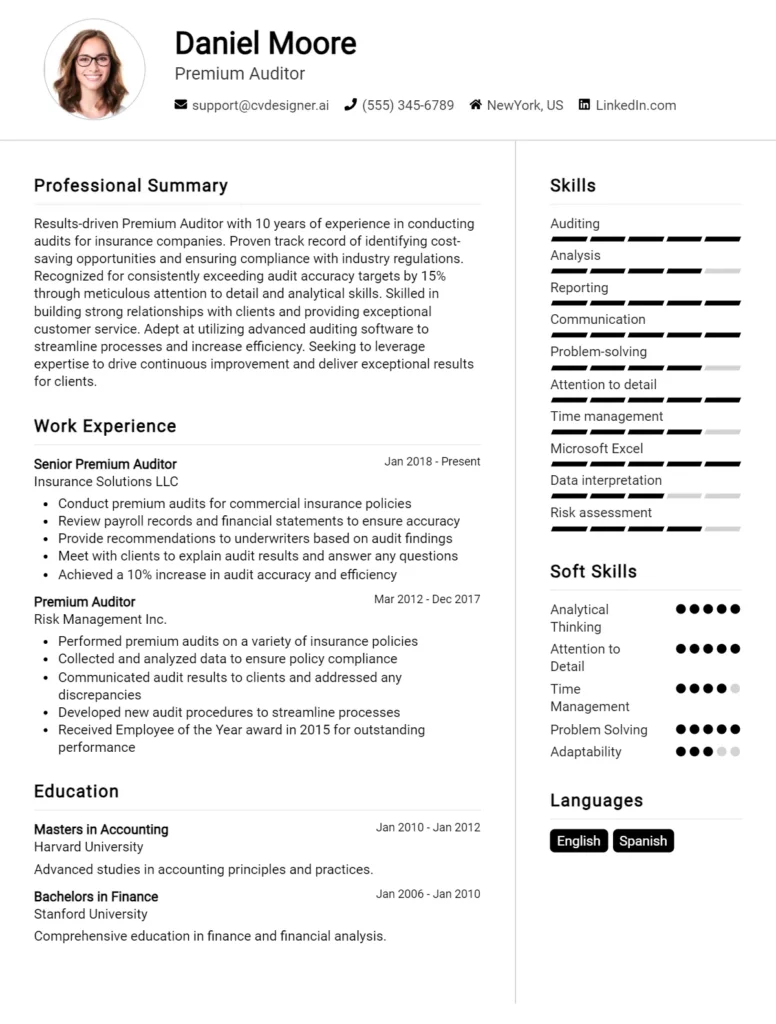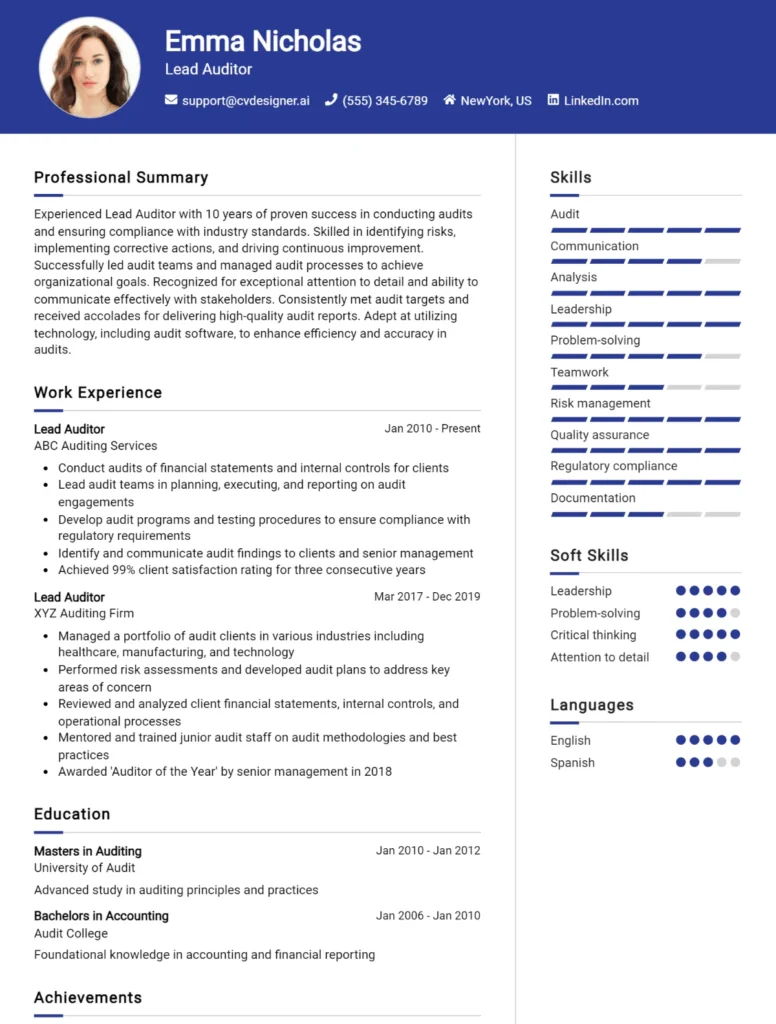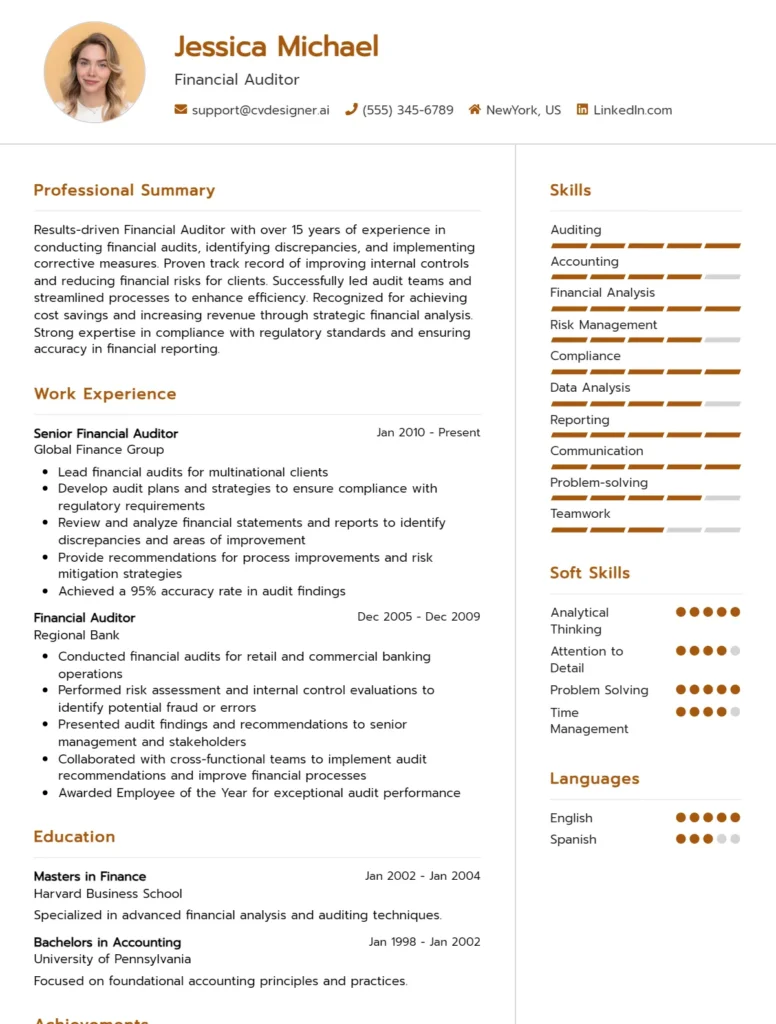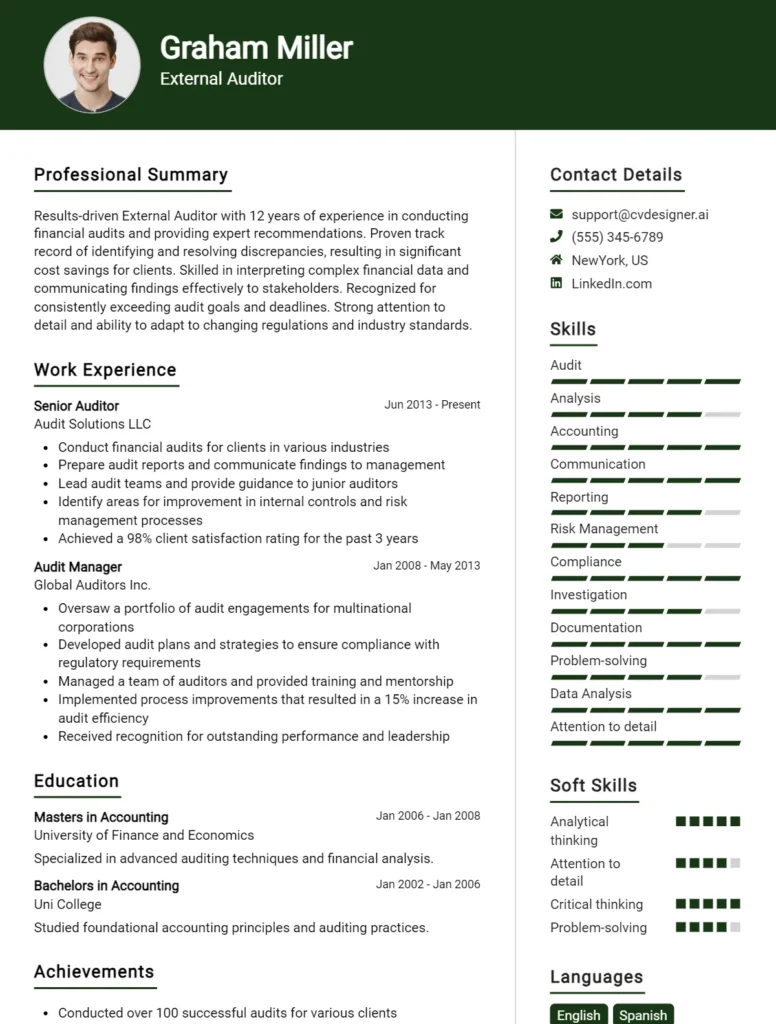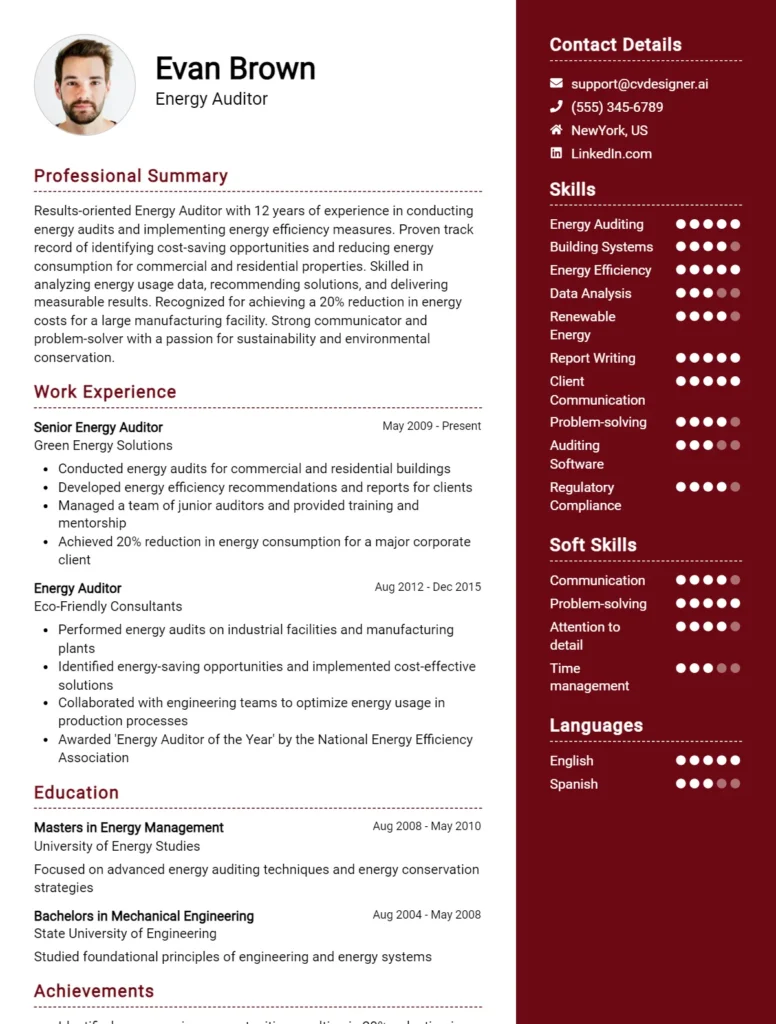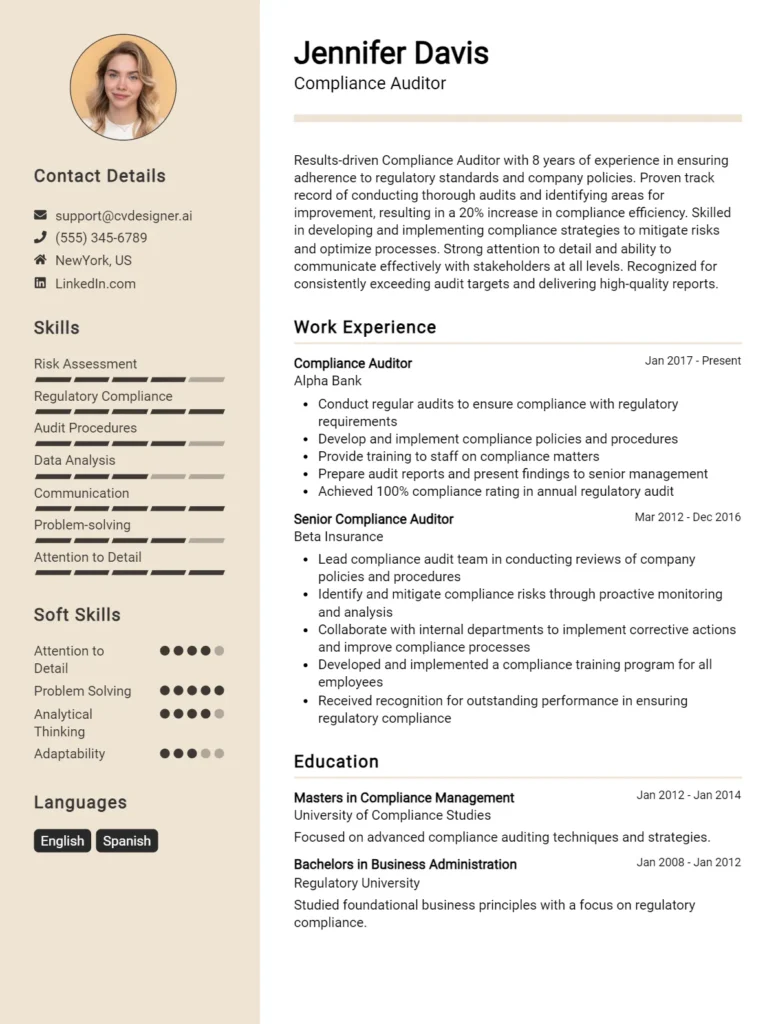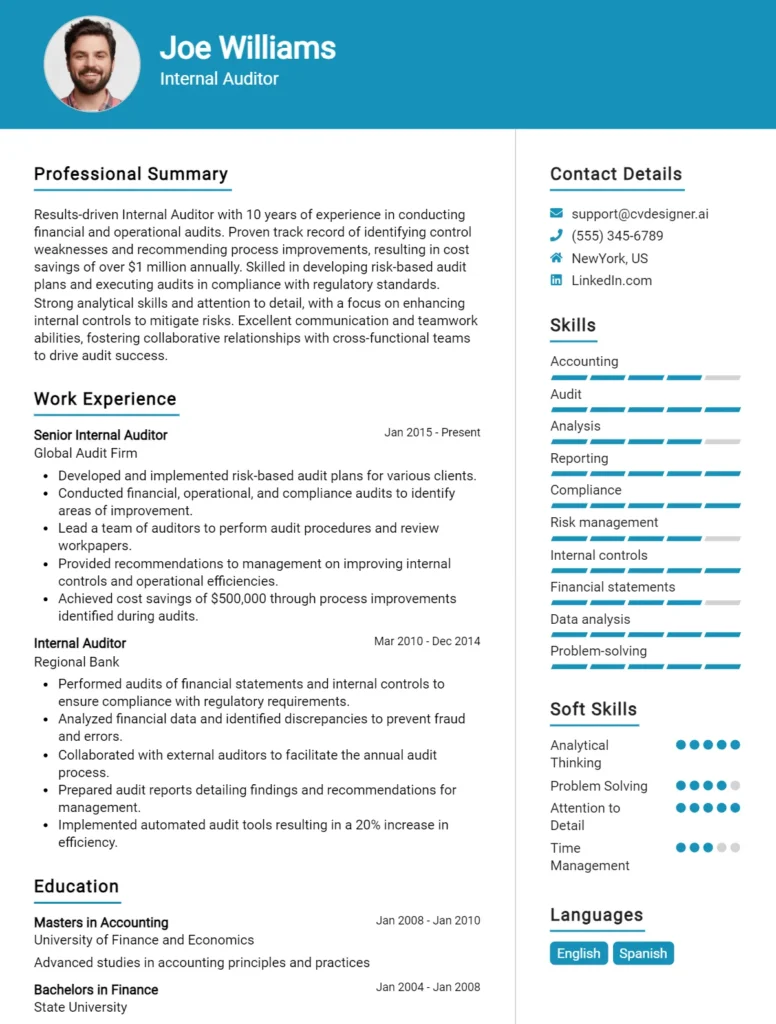Most Popular Auditor CV Examples
Explore additional Auditor CV samples and guides and see what works for your level of experience or role.
Are you detail-oriented, analytical, and have a keen eye for spotting discrepancies? If so, a career as an Auditor might be the perfect fit for you. In this comprehensive guide, we will walk you through the essential tips and strategies for crafting a standout Auditor CV that will impress potential employers. From highlighting your relevant skills and qualifications to showcasing your experience in conducting audits, we've got you covered. Get ready to take your career to the next level with our expert advice on creating a winning Auditor CV.
Key Points Covered:
- How to effectively showcase your auditing skills and qualifications
- The importance of highlighting your experience in conducting audits
- Tips for tailoring your Auditor CV to specific job requirements
- Examples of successful Auditor CVs to inspire your own.
What is a Auditor CV?
An Auditor CV is a crucial document that outlines a professional's qualifications, experience, and skills in the field of auditing. It serves as a comprehensive summary of the individual's background, education, certifications, and achievements related to auditing. A well-crafted CV not only showcases the auditor's expertise but also highlights their attention to detail, analytical skills, and ability to communicate effectively.
In the competitive job market for auditors, a strong CV can make a significant difference in securing employment opportunities. Employers rely on CVs to assess the suitability of candidates for auditor roles based on their qualifications and experience. By following a CV writing guide, auditors can ensure that their CV effectively communicates their expertise and sets them apart from other applicants. Ultimately, a well-written Auditor CV can help professionals showcase their skills and experience in the field, increasing their chances of landing their desired job.
Key Components of a Auditor CV
- Relevant skills in auditing, financial analysis, risk assessment, and compliance
- Strong educational background in accounting, finance, or a related field
- Professional certifications such as Certified Public Accountant (CPA) or Certified Internal Auditor (CIA)
- Extensive work experience in auditing, preferably in a variety of industries
- Proficiency in using auditing software and tools
- Excellent communication and interpersonal skills
- Ability to work independently and as part of a team
- Attention to detail and strong analytical skills
- Knowledge of relevant laws and regulations
- Strong problem-solving abilities
- Experience conducting audits of financial statements, internal controls, and operational processes
- Proven track record of delivering high-quality audit reports
For more information on how to showcase your skills and work experience effectively in your CV, check out these articles on skills and work experience.
Build a Strong Experience Section for Your Auditor CV
As an Auditor, it is crucial to showcase your experience in a clear and concise manner on your CV. Highlighting your key responsibilities and accomplishments can help potential employers understand your skill set and capabilities. Below are examples of strong work experience descriptions for an Auditor:
- Conducted thorough financial audits to ensure compliance with regulatory requirements and internal policies.
- Identified financial discrepancies and discrepancies in accounting records, leading to significant cost savings for the company.
- Collaborated with cross-functional teams to develop and implement audit procedures and processes.
- Prepared detailed audit reports outlining findings and recommendations for improvement.
- Reviewed and analyzed financial statements and reports to assess the accuracy and completeness of financial data.
- Managed audit engagements from planning to completion, ensuring deadlines were met and deliverables were of high quality.
- Provided recommendations for process improvements and internal controls to enhance operational efficiency.
- Communicated audit findings to senior management and key stakeholders, facilitating decision-making and risk mitigation strategies.
Auditor CV Education Examples
As an Auditor, possessing a strong educational background is essential in ensuring accuracy and compliance in financial reporting. Below are some examples of educational qualifications that would be beneficial for a career in auditing:
- Bachelor's degree in Accounting or Finance: A solid foundation in accounting principles and financial analysis is crucial for auditors to effectively examine financial records and statements.
- Master's degree in Business Administration (MBA): An MBA can provide auditors with a deeper understanding of business operations and strategic decision-making, which can be valuable when assessing the financial health of an organization.
- Certified Public Accountant (CPA) license: Obtaining a CPA license demonstrates a high level of proficiency in accounting practices and regulations, making auditors more credible and trustworthy in their roles.
- Certified Internal Auditor (CIA) certification: The CIA certification focuses on internal audit practices and procedures, which can enhance auditors' skills in evaluating internal controls and risk management processes.
- Bachelor's degree in Information Systems or Data Analytics: With the increasing use of technology in financial reporting, a background in information systems or data analytics can equip auditors with the knowledge and skills to effectively analyze and interpret data for audit purposes.
Common Mistakes to Avoid in a Auditor CV
When applying for a job as an Auditor, it is important to have a well-crafted CV that highlights your skills and experience in the field. Avoiding common mistakes can help you stand out to potential employers and increase your chances of landing the job. Some common mistakes to avoid in an Auditor CV include:
- Including irrelevant work experience or skills
- Failing to tailor your CV to the specific job requirements
- Using generic language and buzzwords
- Not quantifying your accomplishments or achievements
- Neglecting to include any relevant certifications or training
- Providing too much information and not being concise
- Making spelling or grammatical errors
- Not showcasing your attention to detail and analytical skills
- Failing to include a professional summary or objective statement
- Using a generic or unprofessional email address.
Key Takeaways for a Auditor CV
- Start with a strong summary highlighting your experience and skills related to auditing.
- List your relevant education and certifications, such as a CPA or CIA.
- Showcase your experience in conducting audits and identifying financial discrepancies.
- Highlight your ability to analyze data and communicate findings effectively.
- Include any experience with audit software or technology.
- Mention any leadership roles or responsibilities in previous auditing positions.
- Quantify your achievements, such as the amount of money saved or recovered through audits.
- Customize your CV for each job application to highlight the most relevant skills and experiences.
- Use professional CV templates to ensure a polished and organized layout. Check out CV Templates for a variety of options.
- Utilize a CV builder to easily create and customize your CV. Try CV Builder for a user-friendly experience.
- Consider including a cover letter tailored to each job application. Explore Cover Letter Templates for ideas and inspiration.
Build your CV in minutes
Use an AI-powered cv builder and have your cv done in 5 minutes. Just select your template and our software will guide you through the process.
